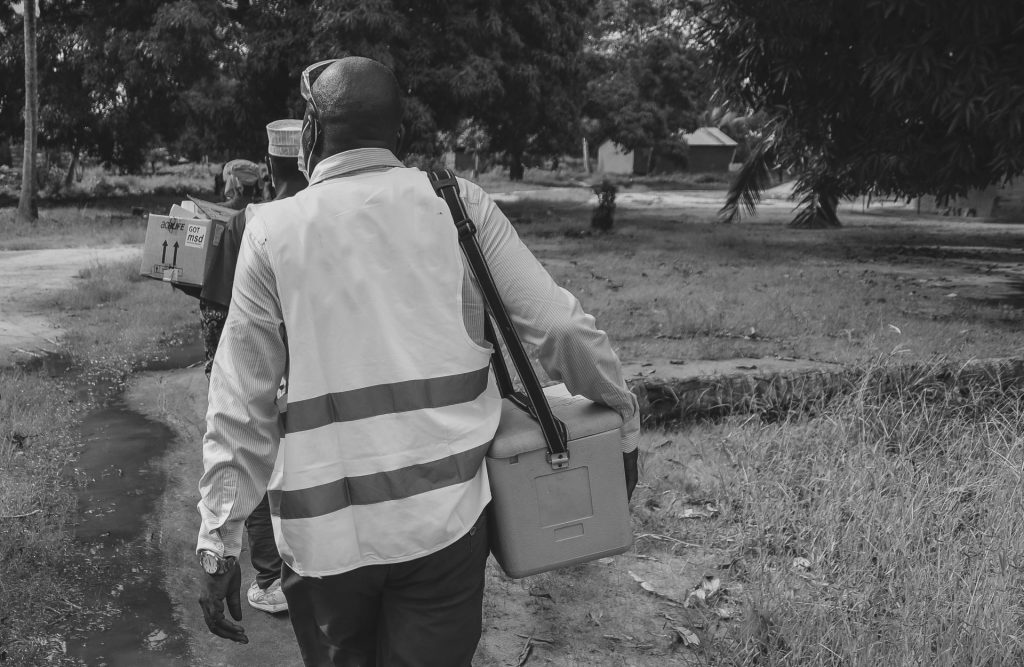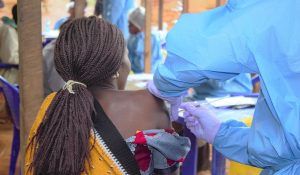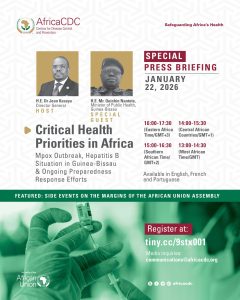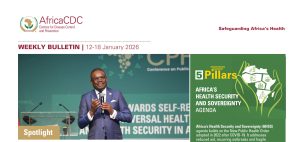A string of crises, from HIV and Ebola to COVID-19 and mpox, has shaped the public health landscape in Africa. Further worsened by recurring threats of infectious diseases and climate-induced health challenges, each of these emergencies has shown that medical and technical capacities alone are not sufficient to protect the continent’s 1.5 billion population.
Regional collaboration and data governance are critical pillars of Africa’s collective health security and legal preparedness in times of emergency.
Experts say that real preparedness demands strong, enforceable and equitable legal frameworks. Such frameworks empower governments to act swiftly, support effective coordination, and uphold the rights and dignity of all individuals, particularly the most vulnerable.
Betlehem Arega Asmamaw, Ag. Head of Legal Affairs and Dispute Settlement at Africa CDC, says legal preparedness is central to Africa CDC’s mission, serving as the bridge between global health commitments and national implementation.
“Africa CDC is at the forefront of ensuring that notable global instruments, such as the amended International Health Regulations (IHR 2024), the WHO Pandemic Agreement, and negotiations on Pathogen Access and Benefit-Sharing (PABS) — all of which impose new obligations and reinforce the principles of equity and solidarity — are understood and contextualised in ways that reflect Africa’s priorities,” Asmamaw said.
Africa’s weak legal preparedness is not just a technical shortfall but a governance gap. The amended IHR and the Pandemic Agreement present a historic opportunity to establish well-funded and rights-based legal systems that make solidarity, early action and cross-border collaboration the foundation of public health security across the continent, she said.
So, what needs to be done now to close this governance gap?
Dr Mohamed Moussif, a Global Health Security Leader, highlighted legal preparedness as a forward-looking process that establishes governance, financing, data-sharing and accountability mechanisms before emergencies occur. By putting in place legal frameworks, African countries can anticipate and mitigate crises rather than react to them.
“We learnt from the COVID-19 experience that without legal frameworks, an effective response can be impeded. It is the foundation for sustaining the Lusaka Agenda and securing equitable access to Primary Health Care (PHC),” Dr Moussif said.
Establishing the requisite legal frameworks is essential for coordinated, cross-border public health responses. Laws that mandate collaboration and regional integration are critical for timely and harmonised action.
To address the pressing need for effective data governance, Africa CDC is currently working with Member States to validate and launch a continental Health Data Governance Framework, in addition to existing Data-Sharing Agreements. These instruments will provide the foundation for the responsible, secure and ethical use of health data across the continent.
Together, these efforts will help build a stronger, more united and better-prepared health security system for Africa.







